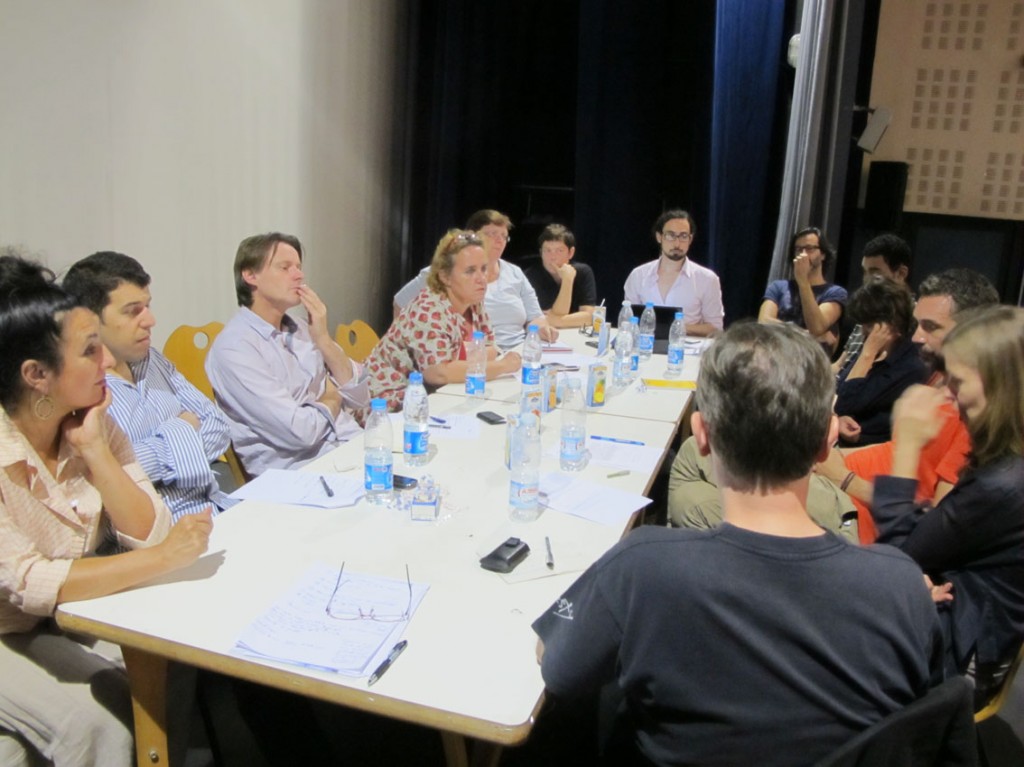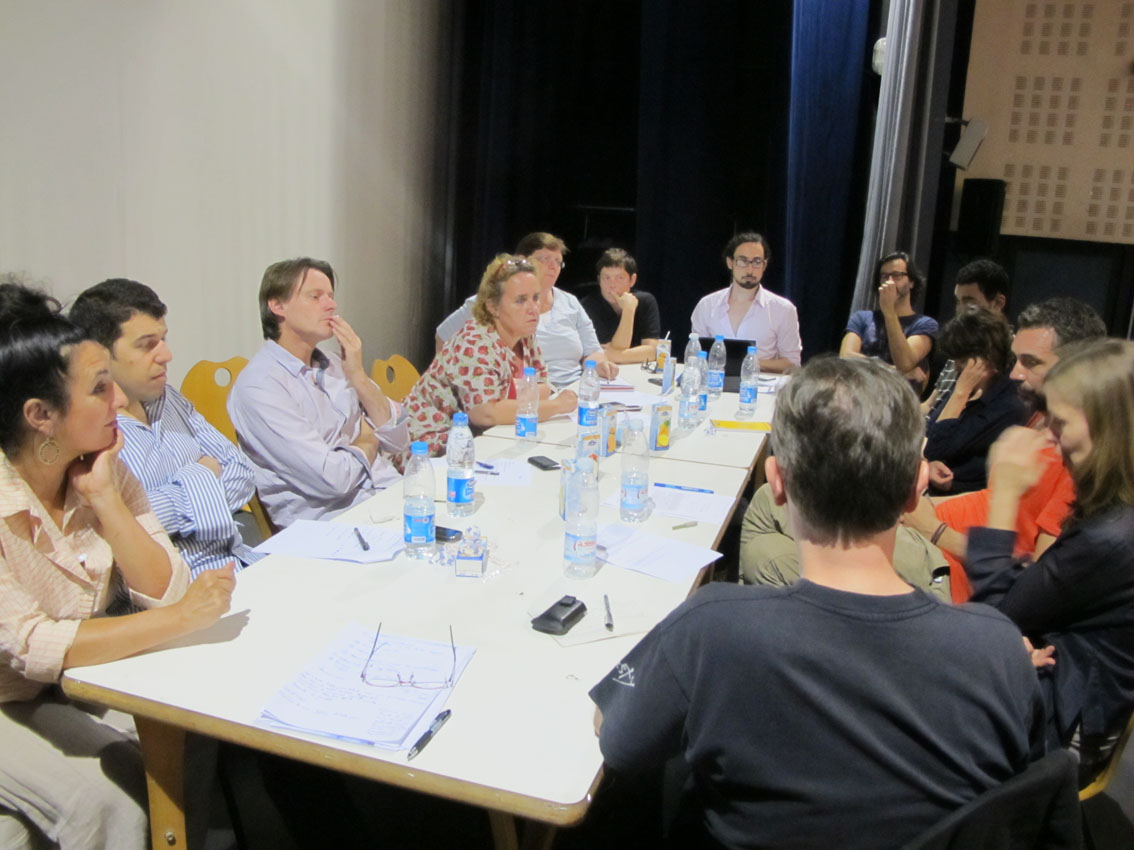
A more serious side to the TransDance festival was evident during the panel titled “Politics, Policy and Production” last Friday. It showed a more academic side of the festival that signified its commitment to the theoretical aspect of their theme “bodies as physical documents”. The panel included the organisers of the festival, participating artists and policy makers as the Cultural Policy Officer to Netherlands Embassy, the Directors of Arts from the British Council from Egypt and Middle East and North Africa, a representative of the Goether Institut and others.
At the start of the panel it was mentioned that artists have been talking for years about how to effectuate change to encourage free artistic expression and that maybe it was time to stop discussing and take action. Maybe it was time to stop talking to policy makers only and to start talking to audiences on a grassroots level.
During the afternoon a perfect illustration of this idea unfolded before the panel when the Egyptian cultural programmer of the venue decided that the topics discussed were maybe not much to her liking. Using the reason that the staff was due to go home, the lady announced that the panel had to stop early and leave the premises, even if the times for the panel had been previously arranged. The technicians in question felt differently and refused to end the panel, nor did they accept additional remuneration. “Our job is to provide technical support to cultural events, and so we are here doing the job we are paid for,” said one of the technicians.
Another topic that was discussed was the obtaining of visas and border regulations and the artists had much to say about power relations and the unequal footing that European artists, for example, were on, compared to North African artists. The idea was how do artists put a mechanism in place in order to protest, through art, the system that they say discriminates against them.
The panel then took to examining the idea of cultural and artistic exchange and the role of embassies, with many representatives from cultural institutes and embassies present, and how culture is a representation of a certain country to another.
This is where the debate got heated, with one German artist saying that we must embrace the negative images and the cultural differences, even if we sacrifice political correctness, so that we are able to engage in dialogue. Ismael Al-Bahar, the Egyptian dramaturge of the festival, responded heatedly saying that there are things you cannot just ‘get over’ and that it was not appropriate to pretend that different people from different cultures understand each other because that point in time had not arrived yet due to unequal power relations, mentioning colonialism and other major issues that are in the way.
“I cannot pretend to understand what a German feels like because that is not my reality, so why should a German pretend to understand mine? And if I do understand his reality better, it is because my education and the cultural hegemony of the west”, said Baher.
Adham Hafez confirmed that the panel discussion was at the very heart of the festival, discussing the political boundaries which artists from all over the world are limited by. “The confrontation that happened during the festival in which the technicians decided to ignore a command from above gave us all hope and inspired us to start a dialogue on a grassroots level to see if we can effectuate change,” Hafez said.
The performances during the festival will continue to address important issues and questioning the place of art in our society and politics, in line with the theme of the festival.



